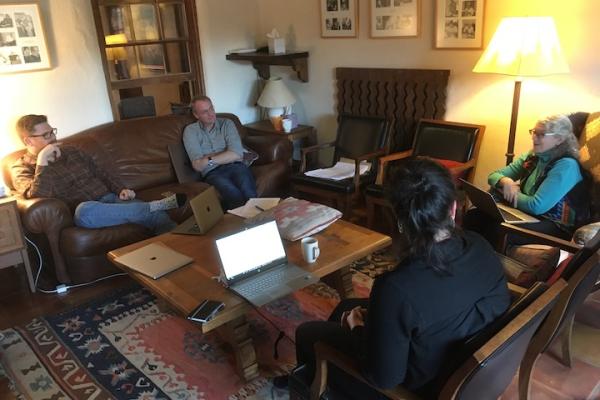Beyond ranchers and pastoralists

In the week of 14-18 November 2022, Nikolaus Schareika and I led a workshop on transformations in livestock systems at the School for Advanced Research (SAR) in Santa Fe, NM, which was supported by a grant from the Wenner-Gren Foundation (Gr. CONF-821).
The goal of the workshop was to come to a better understanding of transformations of livestock systems and how they are transformed by capitalism. We started with the premise that the conventional categories of ranching and pastoralism are not adequate concepts to describe and explain the diversity, complexity, and dynamics of livestock systems.
Understanding the social, cultural, and economic transformations of livestock systems is important because it has major implications for rural populations across the world, including increasing economic inequality, disappearance of the commons, declining community relations, degradation of grazing lands, and reduced resilience to challenges like climate change. We used a comparative approach that highlighted how communities involved in livestock systems adopt, adapt to, and challenge capitalist logics and offer new ways to raise livestock in the twenty-first century.
We organized two workshops – one virtual and one in-person at the School for Advanced Research in Santa Fe, NM – to explore these transformations with researcher with long-term experience and expertise of livestock systems across the globe. The papers prepared for the workshop examined transformations in livestock systems in Australia, Kenya, Mongolia, Niger, Cameroon, Spain, and the USA, and they will be part of a special issue for a peer-reviewed journal.
